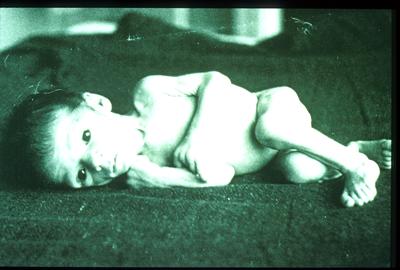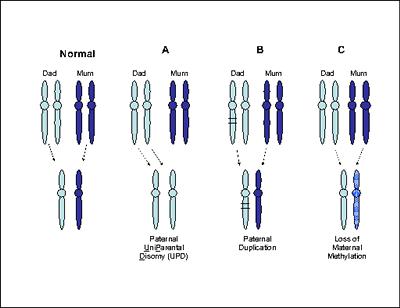6q24 Related Transient Neonatal Diabetes Mellitus

The human genetic code comprises approximately 3 billion DNA letters (bases) arranged in 23 strings called chromosomes. Within thee chromosomes there are about 23,000 known genes. All genes come in pairs and people inherit one copy from their mother and one from their father. Usually both copies of each gene are active, or "turned on,". For some special genes, called imprinted genes, only one of the two copies is turned on. Which copy is active depends on the parent of origin: some imprinted genes are normally active only when they are inherited from a person's father; others are active only when inherited from a person's mother. This phenomenon is known as genomic imprinting.
6q24 related transient neonatal diabetes mellitus is an imprinting disorder due to an alteration with the way that 2 imprinted genes on the 6th chromosome are controlled. They are called PLAGL1 and HYMA1.
So far there are three genetic mechanisms that have been identified that cause TND; in each case the normal balance between the fathers and the mothers copy of the imprinted gene is altered.

A – Paternal Uniparental Disomy (UPD)
About 40 percent of cases of 6q24-related transient neonatal diabetes mellitus are caused by a genetic change known as paternal uniparental disomy (UPD). In UPD people inherit both chromosome copies from their father instead of one copy from each parent.
B – Paternal Duplication
Another 40 percent of cases of 6q24-related transient neonatal diabetes mellitus occur when the copy of chromosome 6 that comes from the father has a duplication (doubling up) of genetic material at the imprinted region on 6q24 .
C – Loss of Maternal Methylation
20% of cases have a problem with the ‘turning off’’ mechanism of the maternal copy of the genes (PLAGL1 and HYMA1 copy from the mother). Both copies are turned on rather than just the paternal copy. Sometimes this type of TND is due to a fault in a control gene called ZFP57 – this gene regulates the turning off mechanism.
More information about transient neonatal diabetes can be found on the FAQ's page.